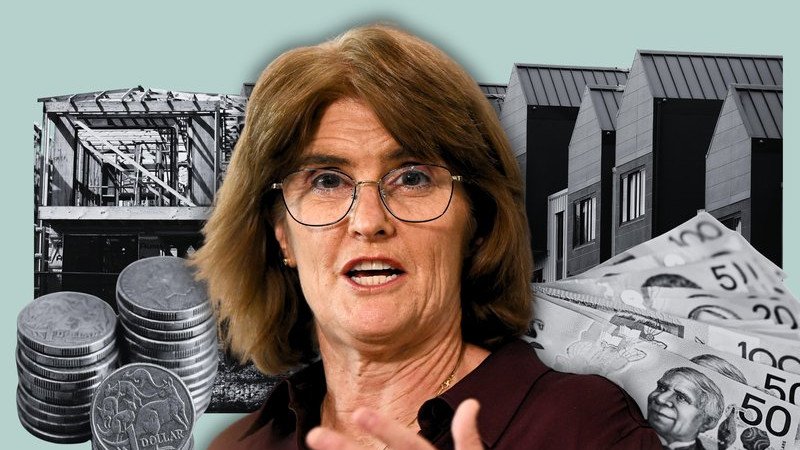EDITORIAL: Pain ahead as inflation dragon roars back into life
EDITORIAL: Instead of further rate cuts, at best we can expect rates to be forced into a holding pattern and at worst we are staring down the barrel of a series of hikes.

Here we go again.
Consumer prices rose another 3.2 per cent in the year to the end of the September quarter, the worst it has been since June 2024.
Prices rose 1.3 per cent in the three months to the end of September – the highest quarterly spike in more than two years.
Sign up to The Nightly's newsletters.
Get the first look at the digital newspaper, curated daily stories and breaking headlines delivered to your inbox.
By continuing you agree to our Terms and Privacy Policy.And they are rising at alarming speed. This is the biggest jump between quarters since the nadir of the cost-of-living crisis in 2022.
It means that inflation is officially outside of the Reserve Bank’s target range of between 2 and 3 per cent.
That is bad news for households, whose purchasing power is dropping rapidly.
It’s telling that Chalmers chose not to front up to the media on Wednesday
But to listen to Treasurer Jim Chalmers, these figures are no big deal.
“Inflation has ticked up today, but it’s much lower than what we inherited, and that reflects the substantial progress we’ve made together in our economy,” Dr Chalmers said in a statement.
“While headline inflation increased last quarter, this was largely as a result of the end of State energy rebates, and it remains much lower than its peak.
“When we came to office, headline inflation was 6.1 per cent and climbing – now it’s about half of that. The progress we’ve made on inflation has given the Reserve Bank confidence to cut rates three times this year.
“The global economy is volatile and uncertain and that impacts inflation in economies around the world.”
The end of energy rebates, the vague notion of volatility in the global economy — take your pick from the excuses.
Power is certainly a big problem. The data shows households are spending a massive 33.9 per cent more on their electricity bills than they were a year ago.
Blaming the surge on the conclusion of rebates feels insincere. These programs were always just papering over the cracks; a way of artificially lowering the headline inflation figure to allow governments to claim a win over inflation (and some votes at elections in the process).
The problem is greater than just electricity. Housing costs have increased 4.7 per cent and education costs 5.3 per cent.
The upshot of all this is more pain for households already struggling.
Instead of further rate cuts, at best we can expect rates to be forced into a holding pattern and at worst we are staring down the barrel of a series of hikes.
Judo Bank chief economic adviser Warren Hogan is among the pessimists. He expects headline inflation will continue to climb, hitting 4 per cent next year.
If that comes to pass, a series of painful rate rises is inevitable.
That will be terrible news for new homeowners in particular, especially those who have been lured into the housing market through the expansion of the Federal Government’s 5 per cent deposit scheme.
It’s telling that Dr Chalmers, rarely media shy, chose not to front up to the media on Wednesday. Instead, he issued a statement and was drawn into making a few comments in question time.
He knows as well as anyone that his claim that these figures are no big deal don’t stand up to scrutiny.
For households already struggling to keep their heads above water, they’re a very big deal indeed.
